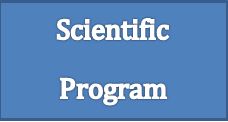Seong Gu Hwang
Hankyong National University, South Korea
Title: Anti-inflammatory activity of Euphorbia tithymaliodes L. ethanol extract in lipopolysaccharide-stimulated RAW264.7 macrophages
Biography
Biography: Seong Gu Hwang
Abstract
Euphorbia tithymaloides L. is native plant growing in tropical and subtropical areas of Asian countries. It has been known as traditional medicine with a wide range of healing properties such as anti-oxidant, anti-inflammatory, anti-hemorrhage, antidiabetic, antibiotic, and anti-tumoral. It contains some bio-active compounds such as beta-sitosterol, cycloartenone, octacosanol, oxime, etc. In earlier in-vitro study, octacosanol has reduced the expression of mRNA or protein of pro-inflammatory cytokines. This study is aimed to evaluate the anti-inflammatory activity of Euphorbia tithymaloides L. ethanol extract (ETE) in RAW264.7 macrophages. Anti-inflammatory activity was studied by treating RAW264.7 murine macrophages cells with increasing concentration of the ETE extract (50, 100, 200, and 400 μg/ml). Lipopolysaccharide (LPS) was used to activate the cells. CCK-8 assay and Griess reagent were used to examine the cell viability and Nitric Oxide (NO) production, respectively. The result shows increasing concentration by 200 μg/ml increases cell proliferation then declines. On the other hand, Nitric Oxide (NO) production decreases with the increase of concentration of the extract. Reverse Transcriptase-Polymerase Chain Reaction (RT-PCR) was used to measure the mRNA expression of pro-inflammatory cytokines. Western blotting was also done to examine the effect of ETE extract on the protein expression of RAW264.7 murine macrophages cells. It has been shown that increasing concentration decreased the mRNA expression of IL-6, iNOS, COX-2, TNF α, IFN γand NF-kB, as well as protein expression. In conclusion, the results support the empirical use of Euphorbia tithymaloides L. ethanol extract as an anti-inflammatory medicine.

